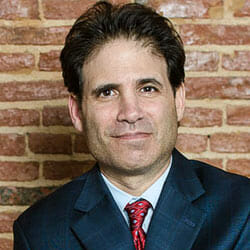Death Is A Part Of Life
 We accept the fact that we sometimes lose people we love because we have no other choice. But when our loved ones are taken from us needlessly because someone else acts carelessly or recklessly, we have the right to make sure that person is held accountable.
We accept the fact that we sometimes lose people we love because we have no other choice. But when our loved ones are taken from us needlessly because someone else acts carelessly or recklessly, we have the right to make sure that person is held accountable.
Wrongful death claims are legal actions taken by survivors of a deceased person to hold the responsible party accountable for the damages they have caused. These claims are different than pressing criminal charges, which is typically done by the state. Wrongful death claims are civil actions, which means they are filed by one or more people against another person or entity.
Below, we’ll learn more about these claims, including why they are filed and who they can be filed against. Before we delve into the specifics of wrongful death claims, let’s first consider what we mean when we talk about unintentional, preventable deaths.
Deaths That Should Not Have Happened
The type of death at the heart of most wrongful death cases is unintentional injury-related death. Typically, these are not deaths caused by malice, like they are in homicides, nor are they deaths caused by most health complications, such as heart attacks or cancer. Rather, these deaths are the result of unintentional injuries like those suffered in vehicle crashes or in hospitals, for example.
Unintentional injuries were the fourth leading cause of death in the United States in 2015, leading to 146,571 fatalities, according to the Centers for Disease Control and Prevention. Unintentional injuries are the leading cause of death among people ages 1 to 44. However, as we’ll see, those estimates could be much greater if you include medical errors.
Of those deaths listed by the CDC, the leading causes were:
- Poisoning – 47,478 deaths
- Motor vehicle crashes – 36,161 deaths
- Falls – 33,381 deaths.
Other causes listed by the CDC include suffocation, drowning, fires/burns, being struck by or against an object and machinery-related injuries.
Research suggests that medical error could play a big role in the number of deaths. A Johns Hopkins study in 2016 found that more than 250,000 people die every year because of medical error, which would make medical error alone the third leading cause of death in the United States. While not every medical error would technically be considered medical malpractice, a legal distinction used in injury and wrongful death claims, medical errors are generally considered preventable.
Understanding Wrongful Death Claims
In Maryland, a wrongful death claim is different than a personal injury claim, though these two types of cases have much in common. In a personal injury claim, an injured person files a lawsuit against a person or persons to be compensated for the costs associated with their injury. In other words, if someone is injured due to another person’s negligence, they will file a claim to receive money for medical bills, ongoing care, lost wages, pain, suffering and any other number of damages.
In Maryland, there are also survival actions, in which survivors file a claim against the negligent party on behalf of the deceased’s estate. A wrongful death claim seeks compensation for the burdens placed on loved ones, while a survival action seeks compensation for the damages suffered by the deceased.
Common Examples of Wrongful Death
Vehicle Crashes – In 2016, vehicle crashes led to around 40,000 deaths in the United States. More than 9 out of every 10 crashes are caused by human error. When a negligent driver makes a mistake behind the wheel and that mistake leads to another’s death, they can be held accountable through a wrongful death claim. Claims might be filed against drunk, distracted, speeding, drowsy or reckless drivers, for example.
Medical Malpractice – When doctors make mistakes in a medical setting, the results can be disastrous for patients. Medical errors can be made because of miscommunication within a hospital or department or simply because of careless practice by a professional. Medical misdiagnosis, medication errors, anesthesia errors and surgical errors could all lead to patient death, which could, in turn, result in a wrongful death claim.
Workplace Accidents – Every year, nearly 5,000 workers die from on-the-job injuries. Workers are entitled to a safe workplace, and it is up to employers and supervisors to provide that safety. When they fail to meet that obligation and put workers in harm’s way, they can be held accountable for damages suffered by a deceased worker’s loved ones.
Product Liability – Dangerous, defective products can also lead to serious injuries and death. Consumers expect that the goods they purchase are safe, yet manufacturers do sometimes sell dangerous products to the public. If a defective medical device, defective vehicle or any other faulty product causes a consumer’s death, the manufacturer can be held accountable.
Filing a Wrongful Death Claim
A wrongful death claim is usually based on a few basic concepts. First, the death was preventable. Second, the death was the fault of a person or organization. Third, there are damages inflicted by the death that should be paid by the negligent party.
Survivors of the deceased face incredible challenges that go well beyond the emotional turmoil caused by losing their loved one. A wrongful death can set a family back financially and have ripple effects that disrupt their lives for years to come. Wrongful death claims can serve as a tool to limit the negative consequences of their loss. A claim will obviously never fill the void caused by the loss of a loved one, but it could help survivors cope and manage the fallout.
From a legal perspective, these claims can be complex. If you are considering filing a wrongful death claim in Maryland, you need an attorney who has experience in this area of the law. To learn more about filing wrongful death claims in Maryland, contact Steven H. Heisler to schedule a free consultation.

Attorney Steve Heisler
Steve Heisler decided in 1996 that he was going to focus his law practice exclusively on injury cases. Since then, he has been representing injured people against insurance companies, disreputable medical practitioners and Big Pharma, and doing it with compassion, honesty and level-headed rationality. [ Attorney Bio ]

